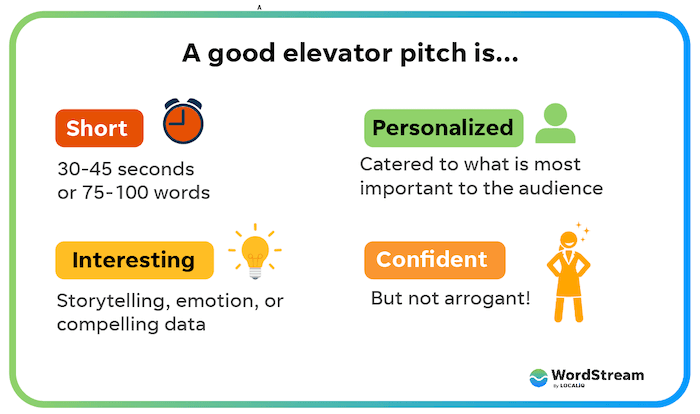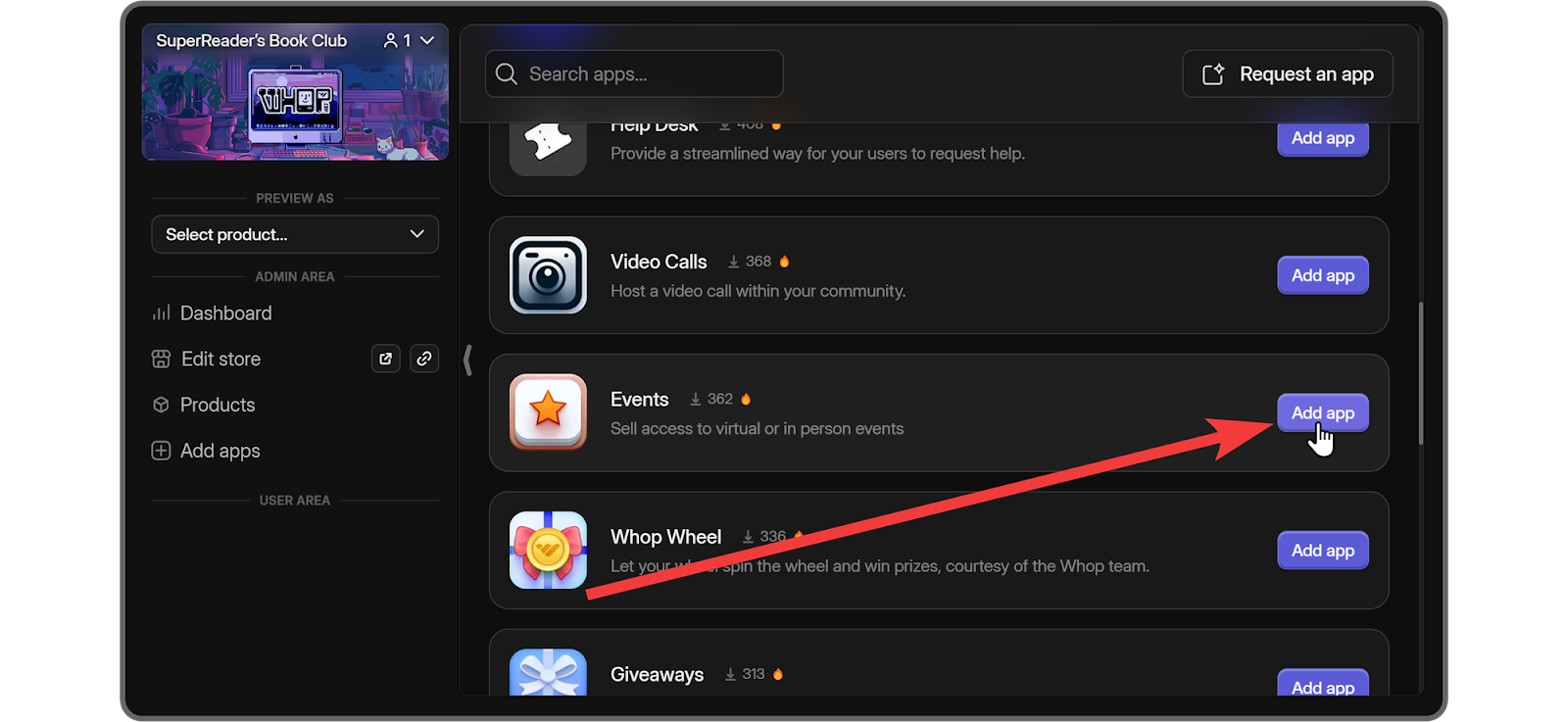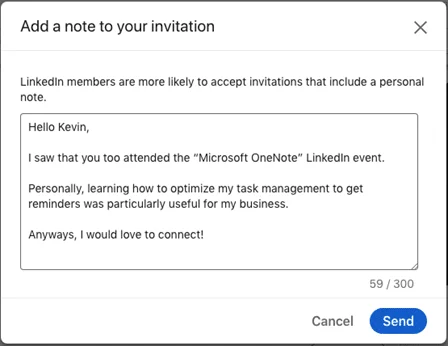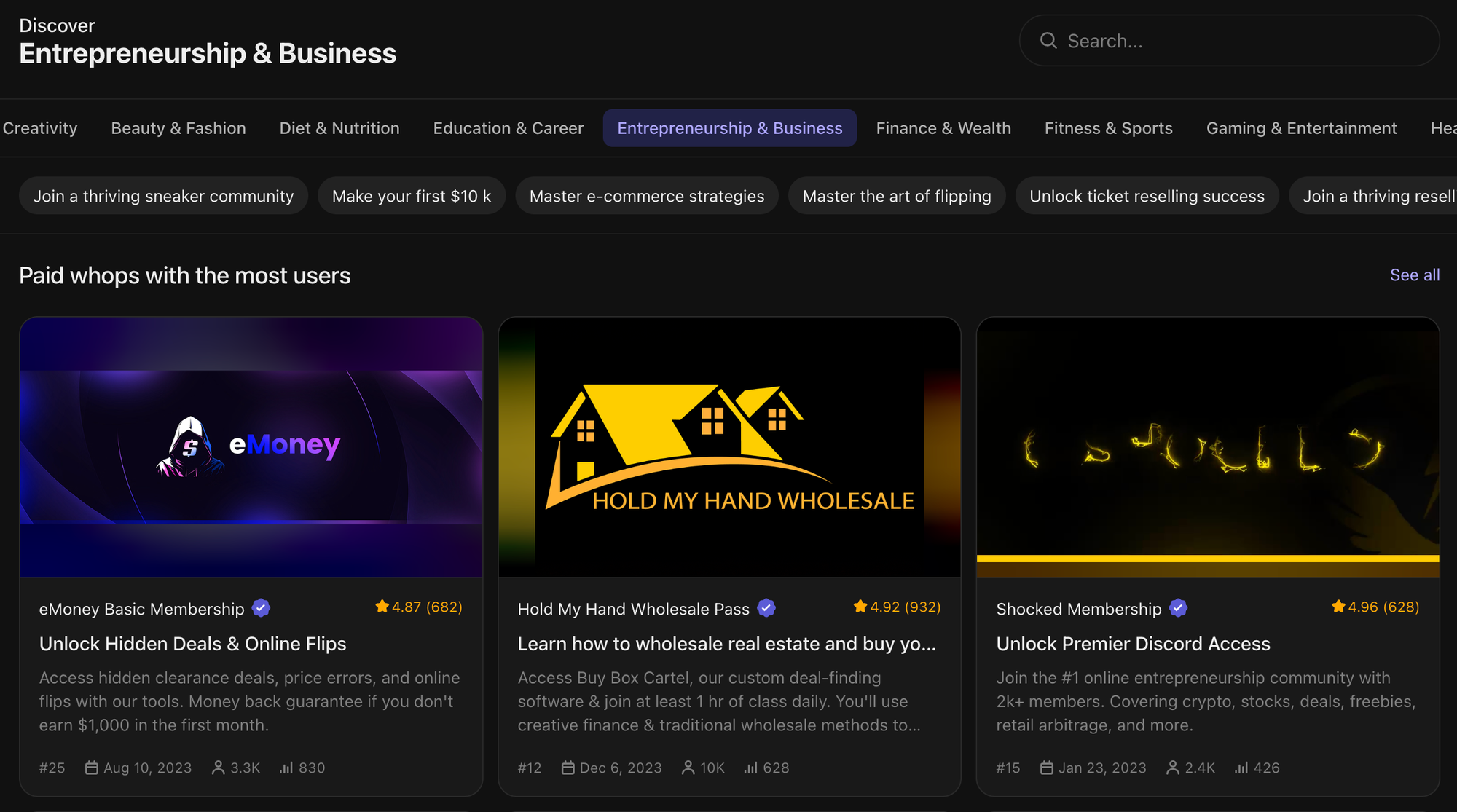Networking is an essential part of any business growth - but how do you start? Read this guide for actionable networking tips,
Key takeaways
- Start networking with existing connections like former colleagues and satisfied customers who already know your work.
- Focus on 2-3 relevant conferences rather than attending every event to build deeper, quality relationships.
- Create value first by helping others without expecting immediate returns to build genuine, lasting connections.
As a small business owner, there’s a bunch of things you need to get a handle on. From bookkeeping, to recruitment, to marketing, you’ll likely find yourself wearing many hats.
No matter the business, networking is an essential skill.
Why? Primarily, because small businesses don’t have the kind of reach big corporations do. And networking does more than grow your customer base. It helps you grow resources, assists you expansion plans by giving you access to experts in the field and helps you keep on top of the latest industry developments.
If you're running your small business from home, networking also offers the opportunity to connect with new people and enjoy some valuable (and necessary) social interactions.
So, if you’re a small business owner, don’t hit the ‘Back’ button on this article. Here are 15 time-tested networking tips to help you succeed in business.
Tips for networking that will help you make more connections
We’ve put together 15 tried and tested approaches to ace your small business networking game.
1. Start with existing connections
The most valuable networking opportunities often lie within your existing professional circle. Former colleagues, clients, and business partners already know your work ethic and capabilities.
Send a quick message to catch up and let them know what you're up to now. You'd be amazed how many opportunities can come from a simple "Hey, how have you been?"
Don't overlook your satisfied customers—they can be powerful advocates for your business.
Develop a systematic approach to request for referrals, perhaps after successfully completing a project or receiving positive feedback. Make it easy for them to make introductions by providing them with a clear description of your ideal clients and the problems you solve.
2. Make a plan
Networking doesn’t mean you have to approach anyone and everyone - most of us are all too familiar with inboxes flooded with sales pitches and spam. As a small business, it’s impractical to spend time and money on a team specifically to network. That said, doing research and looking for networking opportunities is still important. That’s where making a plan helps.
Sit down with your team to discuss your business goals. Identify events that could benefit the company and partners you want to build a relationship with. Look for conferences or trade shows where you can connect with other professionals in your industry.
For example, the RSA Conference held in San Francisco around April or May is the place to network with thought leaders and experts in cybersecurity, information security, and risk management. Digital Summit, held in multiple US cities throughout the year, is focused on digital marketing, content strategy, and social media.
Decide who will be the face of the company, at in-person events or virtual events on platforms like Whop. Networking is about building relationships, so it helps to have a familiar name at the end of each email.
A designated contact person to address questions and concerns will make a big difference while networking.
3. Get your 'elevator pitch' right
Picture this: You’re in an elevator with a major investor. What would you say to them? How would you get them interested in your company? And, most importantly, could you say it before you reached the ground floor?
Crafting the perfect elevator pitch means knowing how to sell yourself, your ideas, and what your business has to offer, in five minutes or less. And, it’s one of the most essential networking skills.

After all, you may only have a few minutes of someone’s attention, while they’re getting a cup of coffee before the event. You could of course slide into their DMs with a cold pitch, but there too, your message needs to be short and impactful.
4. Be selective
You can't attend every event and talk to everyone. So, focus on quality, not quantity. Instead of running yourself ragged trying to attend every event in town, pick the ones that really matter to your business.
Maybe it's that monthly industry meetup where all the key players hang out, or a cozy roundtable discussion where you can connect more intimately with other business owners.
By showing up regularly to a few great events, you'll build genuine relationships and see better results, all while keeping your sanity and your business running smoothly. Once you’re there, here are some tips to make the most of the event (as shared by Redditors)

- Ask a good question during the Q and A: If there’s a panel discussion, attend it. By asking a smart and relevant question, you get noticed. Approach the person afterwards, compliment or comment on a particular point and make a specific request - a meeting, an interview, etc.
- Ask for introductions: To grow your small business network, request people you’ve connected with who else you should speak to and get an intro. Please normally love to help someone who's just starting out and will be more than happy to make an introduction.
- Ask 'What' or 'How' questions: Let them talk and listen carefully to their needs. Be the person that doesn't talk the whole time. Try to identify their problems and solve it.
Can’t make it to an in-person event? Host your own virtual event on Whop with the Events app. It’s a great way to organize digital or real-life events and let members of your whop sign up for them.

5. Participate in your community
Getting involved in the community is a great way to expand your network.
What does this look like? It could mean sponsoring community events, hosting meets, or participating in local business associations. Customers prefer to support local businesses that reflect their community and values. So, use the existing community connections you have.
Sponsor a community event, support a local team, and reach out in your own community. All great ways to improve your community and extend your network.
6. Visit trade events
Trade events and conferences are perfect opportunities to meet amazing people in your field.
77% of networking enthusiasts prefer meeting face-to-face because they love picking up on those subtle facial expressions and body language cues that make conversations so much more meaningful.
Don't feel pressured to attend every event out there. Start by picking 2-3 conferences that really spark your interest this year. Quality connections matter more than quantity, after all.
When you head to these events, come prepared with business cards and some eye-catching materials to share. It helps people remember you after the event wraps up.
And here's a friendly tip: big events can sometimes feel like a whirlwind of faces and conversations. Think about what makes you and your work unique, and let that shine through in your conversations. Standing out doesn't mean shouting the loudest – it's about being authentically you!
7. Keep in touch
Stay connected with the interesting people you meet at business events. Don't forget to exchange contact details - grabbing their email or LinkedIn info makes it super easy to keep in touch afterwards.

Some quick tips:
- Send a connection request within 24 hours of meeting: Personalize your connection request. Your conversation will still be fresh in their mind. This makes the connection more meaningful.
- Keep notes on conversations to reference later: Remembering what matters to them helps you build genuine relationships. Did they mention they’re looking for sustainable packaging solutions? Point them in the direction of relevant content or solutions that are aligned with their goals.
- Schedule regular check-ins with key contacts: Regular touchpoints keep relationships warm and show you value staying connected.
8. Create value first
Creating value first is a fundamental principle of effective networking. Be the person who gives first. Share those cool industry tips you've picked up or useful resources you've found - whether it's through quick social posts or casual chats.
When you spot two people who'd hit it off or could help each other out, play matchmaker. Just make sure they're both cool with it and know why you think they should connect.
One Redditor shared “What has worked for me and has led to crazy opportunity is that I always find a way that I can help them out. I listen and genuinely care about them. I've helped an executive move in Manhattan, picked people up from the airport, helped someone's son' build a PC, sent referrals, and just connected a lot of people.”
See someone struggling with something you know about? Jump in and help. Maybe review their work, flag a job opening, or give feedback if they're looking for it. Don't worry about what you'll get back - when you help others without keeping score, solid relationships just happen naturally.
The bottom line: real networking isn't about collecting business cards. It's about being genuinely helpful and building real relationships.
9. Find mentors
Get out there and attend trade shows, conferences, and local business meetups. They are all opportunities to meet potential mentors in person.
There's something special about those face-to-face chats that just can't be replicated online. Plus, you'll find yourself surrounded by people who really get what you're going through in your industry.
Get active on social media by joining conversations and sharing your thoughts on industry happenings. When you reach out with collaboration ideas, make them specific and show how both sides could benefit.
Join Whop communities or sign up for courses where you can find mentors in your area of business.

Even as you look for guidance, think about what you can offer. Maybe you have a unique perspective or can spot trends others haven't noticed yet.
Remember, the best mentoring relationships aren't one-way streets. You'll be surprised how much value you can offer, even if you're just starting out as a small business owner.
10. Use social networking
Social media isn't about posting updates anymore. It's a 24/7 open house where you can chat with customers, keep an eye on what's happening in your industry, and possibly find your next star employee.
But here's the thing: where you spend your time online depends on what you're trying to achieve.
Take Twitter and Instagram, for example. They're perfect for quick, casual conversations that can turn into something bigger. You might start with a simple comment on someone's post, and before you know it, you're having a meaningful discussion about industry trends.
On the flip side, platforms like Facebook and your company website give you space to really show who you are as a company. You can dive deeper into your values, share longer stories, and build a proper community around your brand.
Here's something people often overlook: social media is fantastic for talent scouting. Where else can you get a feel for someone's professional interests, communication style, and industry knowledge before they even submit a resume?
11. Start a blog
Blogging for business makes business sense. When you blog regularly, you're not just writing into the void; you open doors to exciting opportunities.
You could reach out to bloggers in your field and say, "Hey, I loved your take on [topic]. Would you like to swap guest posts?"
It's a win-win. You get to share your expertise with their audience while they do the same with yours. Plus, there's something really energizing about collaborating with other experts in your industry.
But here's what's even better: it keeps you in your customers' minds long after they've worked with you or bought your product.
12. Reach out to industry partners
Perfecting a cold email pitch can go a long way when expanding your network. Nobody likes copy-paste messages that scream "mass email." When you reach out, make it crystal clear why you picked them specifically and the value you can bring to the table.
Do your homework first though. A quick check of someone's background helps you avoid any awkward mismatches and lets you craft a message that actually matters to them.
Pro tip: If writing isn't your strong suit, you might want to team up with a freelance writer who can help nail those cold emails and guest posts. Sometimes a fresh perspective makes all the difference.
13. Communicate with your target market
Building genuine connections with your target audience gives you a pulse of what's happening. You get to spot trends before they blow up. Before you know it, people start seeing you as a trusted voice in your industry. These connections are a treasure trove of insights.
So how do you communicate with your target market?
Chat with your audience Whop, host insta lives, encourage them to respond to your email newsletters (reassure them that you read every email), do quick polls on social media, and respond to comments. All ways to get real, unfiltered feedback.
You learn what content makes them click, how they really feel about your brand, and what keeps them up at night. It's about understanding the humans behind the numbers.
Maybe your Instagram followers are obsessed with behind-the-scenes content, or your email subscribers can't get enough of your how-to guides. These insights are pure marketing gold, that help you create stuff that actually resonates with your audience.
14. Personalize communications
With AI tools at your fingertips, you can now smartly organize your small business network into meaningful groups.
Think about using tools to sort your contacts based on what makes them tick - their industries, interests, and even the kinds of content they engage with. Once you've got these segments sorted out, you can craft networking campaigns that really speak to each group.
The tech founders on your list might love a virtual coffee chat about emerging AI trends, while your retail contacts may prefer an in-person meetup to discuss local business challenges.
Pay attention to how each person likes to communicate and personalize your outreach. Some folks live in their email inbox, others are LinkedIn enthusiasts, and some prefer good old-fashioned phone calls. Respect these preferences.
If you notice someone always responds quickly on WhatsApp but never on email, that's valuable intel for future interactions.
Why does a personalized approach work? Simply because it feels more genuine and gets better results. When people feel you've taken the time to understand their preferences and interests, they're much more likely to engage and maintain a lasting professional relationship with you.
15. Adjust your strategy as you grow
Keep tabs on what works in your networking game, just like you do with your marketing stats. Some approaches will be a better fit for you than others, depending on your business team makeup, industry, and what you're trying to achieve. Maybe you're crushing it at local Chamber of Commerce meetups but LinkedIn posts aren't getting much traction. Or perhaps your team rocks virtual networking events but finds in-person conferences overwhelming.
Whether you choose to hit up industry events, jump into Twitter conversations, host lunch-and-learns, or work your magic on social media to connect with Gen Z, pay attention to what gets results. Did that coffee chat with a potential client lead to a referral? Did your latest industry webinar bring in quality connections? Track these wins, and most importantly, don't ghost the people you meet - a quick follow-up message or occasional check-in can go a long way.
Ace your business networking game with Whop
Entrepreneurship can be lonely with late nights, tough decisions, and moments when you aren't sure if you're on the right track. That's where Whop comes in.
Whop's range of business communities let you connect with fellow entrepreneurs who share your ambitions and face similar hurdles. They provide a space for meaningful discussions and valuable insights.
Beyond networking, Whop offers targeted courses to enhance your business skills. From digital marketing essentials to financial management, these practical programs deliver real-world knowledge you can implement immediately. It's the perfect blend of community support and professional development, designed to help you thrive in your entrepreneurial journey.
Start growing your small business network with Whop today.
FAQs
What is networking in business?
Business networking is the practice of building professional relationships with other business people, potential clients, and industry contacts through meetings, events, and social platforms. It helps create opportunities for partnerships, sales, career advancement, and knowledge sharing.
Are there free business networking groups?
Yes, there are many free business networking groups. These include local chambers of commerce events, industry-specific meetups on Meetup.com, LinkedIn groups, and professional associations' networking sessions. Many organizations offer free initial meetings or periodic open events even if they have paid memberships.



